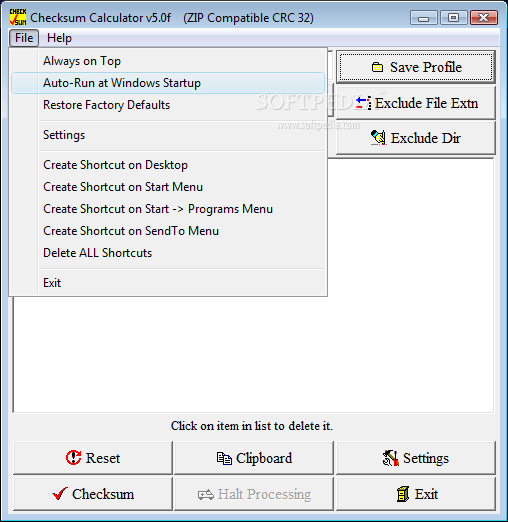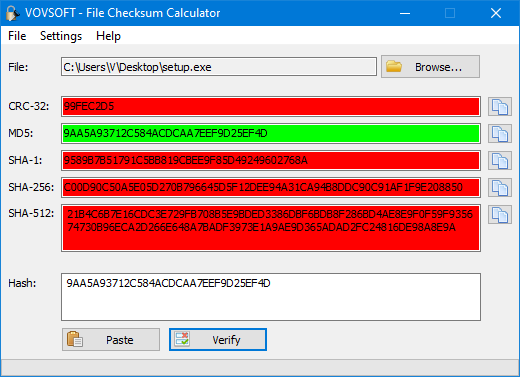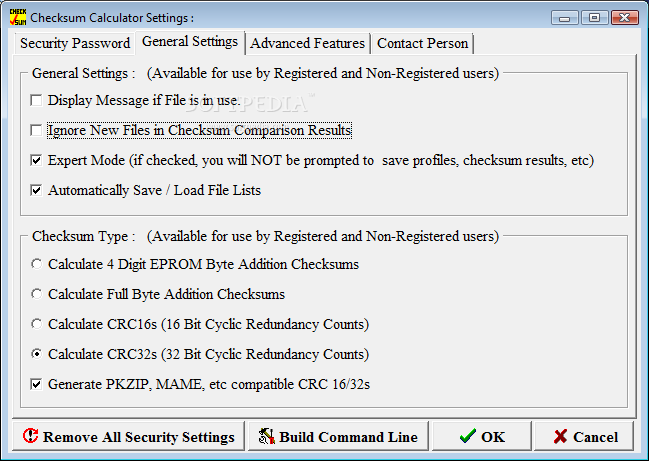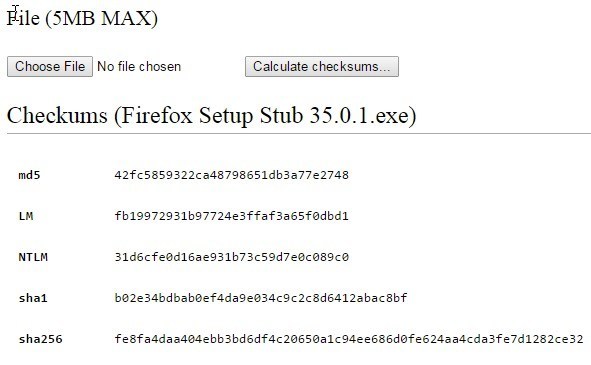


Also, you should try to avoid using generic names such as string for naming your variables.I had also recommend not use the += kind of operators when there a is a non trivial expression on the right side, even though this might come down to personal preference.string = text and not str=text (unless specifying default parameters inside a function). If you do not find a specific product listed below, it most likely doesn't consume any power from the. Need to know how much power your control system application will require Simply enter the quantities of each Cresnet device in the list below that you have specified for your project. Always leave one space when declaring variables. Support / Tools / Calculators / Cresnet Power Calculator.
#Checksum calculator crestron how to#
The API/Protocol document for the product you're integrating should specify how to calculate it.
• I had recommend putting the code after an if statement on its own line, even if it is only a single statement. It uses all of the hex bytes to calculate it the formula is (\x100 - (sum of data bytes))- In Crestron., Neil Dorin# The `-1` is necessary since parity is changed by starting the loop on 1 Untouched lines: items = trailing".format(text, items) Okay so i did read this question few hours ago on phone and started working out an answer on paper, having the performance tag in mind. We can see that the test you've mentioned in the question passes: $ ipython3 -i test.py # TODO: document the logic behind the checksum calculationsĬhecksum += sum(x + 2 * y if counter % 2 else x * yįor counter, (x, y) in enumerate(iterator)) Also, note that you are reusing the string variable to keep the "ords" of each character, which, strictly speaking, is not good - the variable name does not correspond to what it is used for.Īt the end you would have something like: DEFAULT_SALT = "trailing"ĭef get_checksum(part1, part2, salt=DEFAULT_SALT):Ĭombined_string = part1 + part2 + " " + salt if part2 != "***" else part1

Variable naming can be improved - str_a, str_b and string are not the best choices (even though the part1 and part2 in the code below are not either - think about what these strings represent - may be you'll come up with better variable names). But, it might become less explicit and potentially a bit more difficult to understand.Ĭomments and docstrings would definitely be needed to describe the logic behind the checksum calculations. Simply enter the ID Number below and the Check Digit Calculator will calculate the last digit for you. The algorithm for calculating a check digit is: Reverse the barcode. EAN13, EAN14, EAN2, EAN5, EAN8, GS1 CodablockF, GS1 Code128, IATA 2 of 5. You can use sum() instead of having loop with if and else, which increase the overall nestedness. Drop the last digit (calculated check digit) Add the digits together with first, third, fifth, e.t.c. Modified_lines.First of all, I would apply the "Extract Method" refactoring method and put the logic behind generating a checksum into a get_checksum() function.Īlso, I would avoid hardcoding the trailing "salt" and the 0x10000 "normalizer" and put them into the default keyword argument value and to a "constant" respectively. Papinha nestle fase 1, Kuttab al fatih jakarta timur, Crestron gui effects. # Convert the checksum to a hexadecimal string and append it to the line Copystar cs-3035 driver, Gc2900, Md5 checksum calculator windows. # to ensure that the result is always an unsigned 8-bit integerĬhecksum = (checksum + int(number, 16)) % 256 # Add each number to the checksum, taking the modulo 256 Numbers = for i in range(0, len(line), 2)]

# Initialize an empty list to store the modified lines You have to provide the whole SREC as a string: def calculate_checksums(s): I got this working for an SREC, where the first 2 characters are not present "S1" and will generate the checksum for each line.


 0 kommentar(er)
0 kommentar(er)
